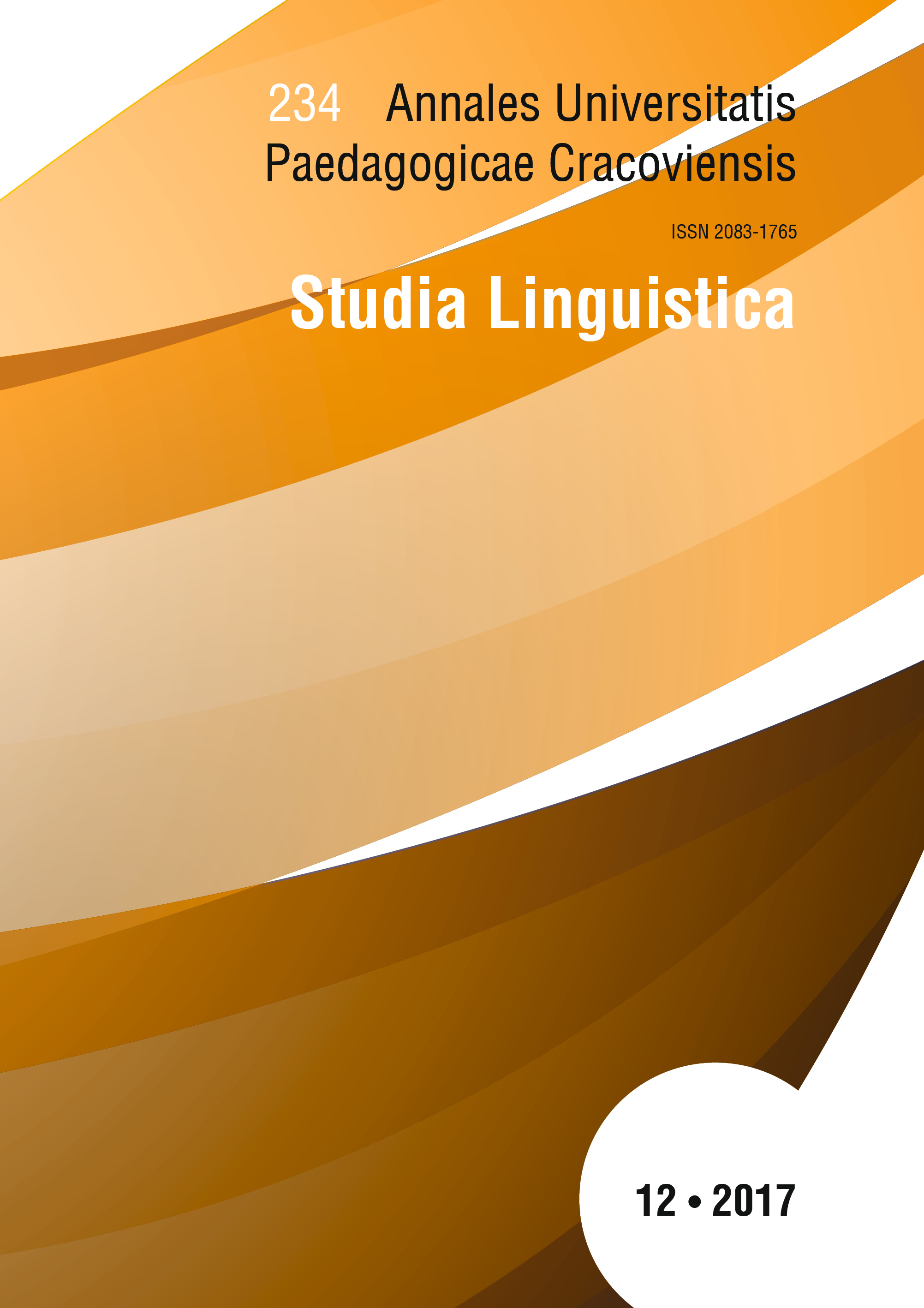The writer and his language. The case of Ivo Andrić
Main Article Content
Abstract
A complex biography of Ivo Andrić (1892-1975) was shaped in a wide net of identity references: ethnocultural, religious, political, and linguistic. He was born to a Croatian Catholic family in Bosnia, he was a convinced supporter of Yugoslavism and a writer of the language defined as Croato-Serbian / Serbo-Croatian diasystem. In the period of his links with the cultural environment of Zagreb (1912-1919), he was writing according to the Croatian standard, later basically, in Serbian, but using environmental and stylistic diversity of the diasystem in order to stress its cognitive and artistic potential. Currently, when four national language standards are developing on the basis of the diasystem: Serbian, Croatian, Bosnian and Montenegrin, reading Andrić in accordance with post-Yugoslav linguistic ideas, that is with the awareness and conviction about the „break-up” of the Serbo-Croatian language, would necessarily lead to an absurd conclusion that the writer created his works using the content of various languages. Literary heritage of the great writer of Serbo-Croatian language, which remains a sociocultural fact, has been used not only by Serbian culture and language, but also by global culture - thanks to translations of the works of this Nobel laureate into numerous world languages.
Downloads
Article Details
Author, submitting a text to the editorial board of the journal “Annales Universitatis Paedagogicae Cracoviensis. Studia Linguistica", certifies that the content of the article has not been published so far and that the work does not violate in any way the copyright or related rights of other person, as well as other rights of third parties, and that no one's rights to the work (or any part thereof) have been missed. After signing the contract, the property rights to the published materials are transferred to the University of the National Education Commission, Krakow.
“Annales Universitatis Paedagogicae Cracoviensis. Studia Linguistica” is an open access journal, and all its content is made available free of charge to users and institutions under the Creative Commons CC-BY-NC-ND 4.0 license (attribution, non-commercial use, no derivative works). Under this license, the authors agree that their work may be lawfully reused for any purpose, except for commercial purposes, without the prior consent of the author or publisher. Everyone can read, download, copy, print, distribute and process these works, provided that the author's marking and the original publication place are correct. Published texts may not be used to create derivative works (e.g. to translate and publish in another language without the consent of the publisher). This is in line with the BOAI (Budapest Open Access Initiative) definition. "Studia Linguistica" does not charge for submitting or processing articles.
References
Cichońska M., 1992, Czy język może się rozpadać?, [w:] Rozpad mitu i języka?, red. B. Czapik, Katowice, s. 177–183.
Google Scholar
Darasz Z., 2014, Njegoševi krugovi identiteta, [w:] Njegoš u svome vremenu i danas, red. Z. Bojović et al., „Naučni sastanak slavista u Vukove dane”, t. 43/2, Beograd, s. 13–21.
Google Scholar
Gołąb Z., 1958, Język czterech narodów, „Poznaj Świat” VI, nr 6, s. 13–16.
Google Scholar
Gołąb Z., Heinz A., Polański K., 1968, Słownik terminologii językoznawczej, Warszawa.
Google Scholar
Hofman-Pianka A., 2000, Socjolingwistyczne aspekty współczesnego języka bośniackiego, Kraków.
Google Scholar
Jaroszewicz H., 2006, Jugosłowiańskie spory o status języka serbsko-chorwackiego w latach 1901–1991, Wrocław.
Google Scholar
Morawiec E., 1975, Mosty, „Życie Literackie” XXV, nr 30, s. 1, 10.
Google Scholar
Nowak-Bajcar S., 2013, Helena, kobieta, której nie ma i która jest. Krakowska biografia Ivo Andricia, Kraków.
Google Scholar
Pianka W., 1992, Nie ma rozpadu języka!, [w:] Rozpad mitu i języka?, red. B. Czapik, Katowice, s. 184–193.
Google Scholar
Skrzeszewska M., 2015, „Mješavinu uspite” lub „mešavinu sipajte” – czy tłumaczenia i oddzielne instrukcje konsumenckie na obszarze byłego języka serbsko-chorwackiego są potrzebne? Analiza wybranych przykładów, „Socjolingwistyka” XXIX, s. 337–354. Wierzbicki J., 1965, Ivo Andrić, Warszawa.
Google Scholar
Wybranowski D., 2014, Geneza i uwarunkowania procesu przekształcenia na przełomie lat 60. i 70. XX wieku wspólnoty muzułmanów z Bośni w Muzułmanów, „konstytucyjny naród” Jugosławii, „Przegląd Zachodni” LXX, nr 4, s. 73–99.
Google Scholar
Netografia
Google Scholar
https://www.jergovic.com/sumnjivo-lice/je-li-ikad-postojao-jezik-kojim-je-pisao-ivo-andric/ (dostęp: sierpień 2017).
Google Scholar
https://www.rastko.rs/rastko-pl/umetnost/knjizevnost/studije/mzivancevic-andric_l. php (dostęp: sierpień 2017).
Google Scholar
https://pl.wikipedia.org/wiki/Laureaci_Nagrody_Nobla_w_dziedzinie_literatury (do- stęp: sierpień 2017).
Google Scholar
